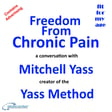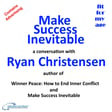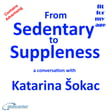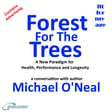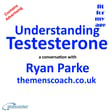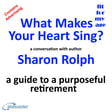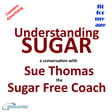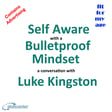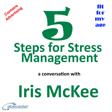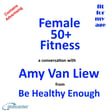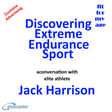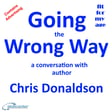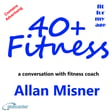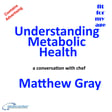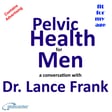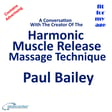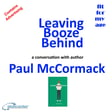
Abs at 60 – a conversation with elite sexagenarian athlete Greg Damian
Greg Damian is an elite senior athlete, with an impressive list of achievements.
That was not always the case. As a teenager he was overweight. His life changed when he realised that a few lifestyle changes could positively impact his health and well-being.
In this episode of Fit For My Age, Greg describes his wake-up call that motivated him to make those changes.
Greg explains to host Michael Millward the signs that men and women might notice that could be their wake-up call.
He has developed a four-step approach to achieving a better level of fitness.
Most people, explains Greg over estimate their activity levels and under-estimate their calorie intake. The starting point says Greg is taking ownership for your own health and well-being.
Greg has a matter-of-a-fact approach that demonstrates his understanding of the health and well-being challenges that men and women face as they age, and explains his straightforward supportive approach to improving fitness at any age.
Fit For My Age is made on Zencastr, the all-in-one podcasting platform, on which you can create your podcast in one place and then distribute it to every platform.
Zencastr really does make making content so easy.
If you would like to try podcasting using Zencastr visit zencastr.com/pricing and use our offer code ABECEDER.
Thank you to the team at Matchmaker.fm for introducing me to Greg.
Matchmaker.fm is where matches of great hosts and great guests are made. Use our offer code MILW10 for a discount on membership.
Travel to California
Greg Damian is based in Florida USA. Members of The Ultimate Travel Club can book travel to Florida or anywhere else in the world at trade prices. Use our offer code ABEC79 to receive a discount on club membership fees.
Visit Abeceder for more information about both Michael Millward, and Greg Damian.
Proactive Positive Ageing.
It is always a good idea to know the risks early so that you can take appropriate actions to maintain good health, that is why we recommend The Annual Health Test from York Test.
York Test provides an Annual Health Test. An experienced phlebotomist will complete a full blood draw at your home or workplace. Hospital standard tests covering 39 different health markers are carried out in a UKAS-accredited and CQC-compliant laboratory.
A Personal Wellness Hub gives access your easy-to-understand results and guidance to help you make effective lifestyle changes anytime via your secure, personal Wellness Hub account.
Access York Test and use this discount code AGE25.
Being a Guest
If you would like to be a guest on Fit For My Age, please contact Abeceder.
We recommend that potential guests take one of the podcasting guest training programmes available from Work Place Learning Centre.
If you have liked this episode of Fit For My Age, please give it a like and download it so that you can listen any time anywhere.
To make sure you do not miss future editions please subscribe.
Remember, the aim of all the podcasts produced by Abeceder is not to tell you what to think, but we do hope to make you think!
Until the next time, thank you for listening.
